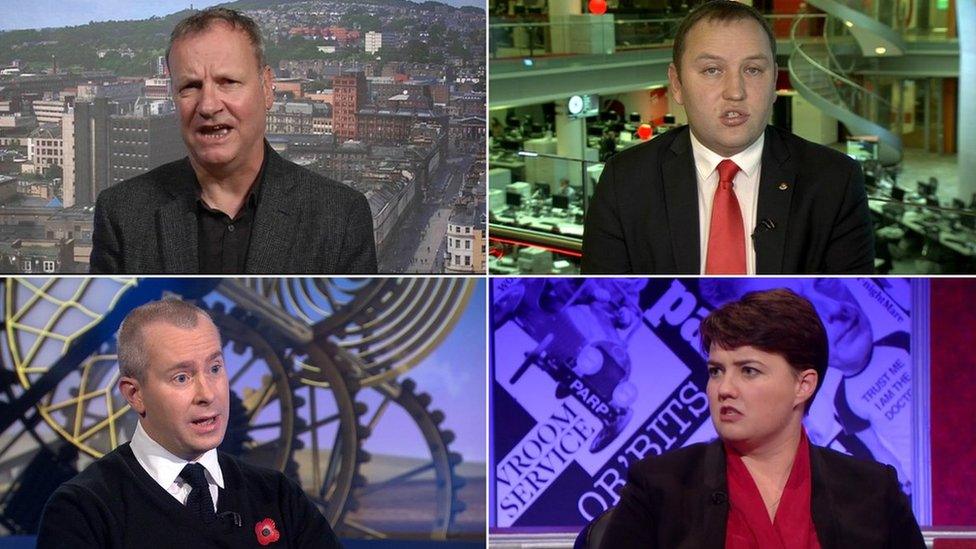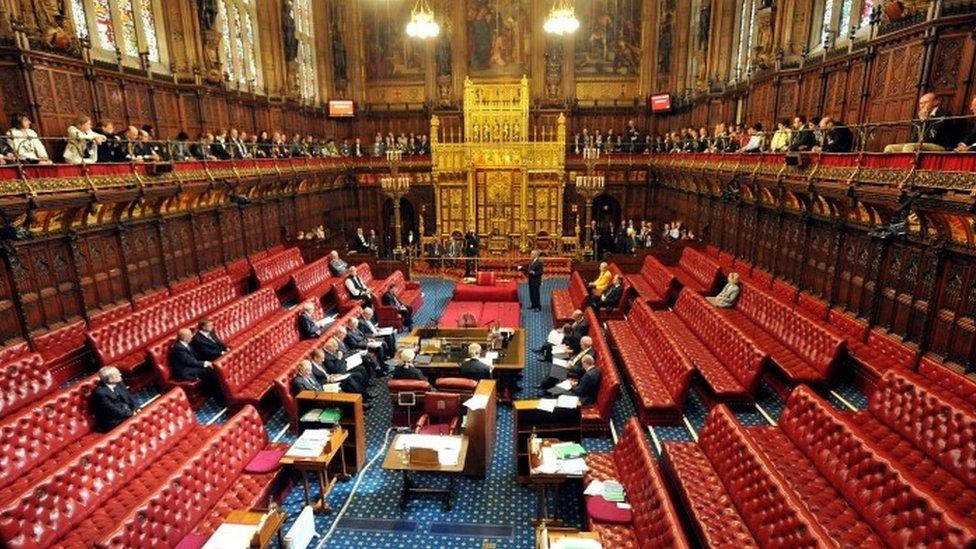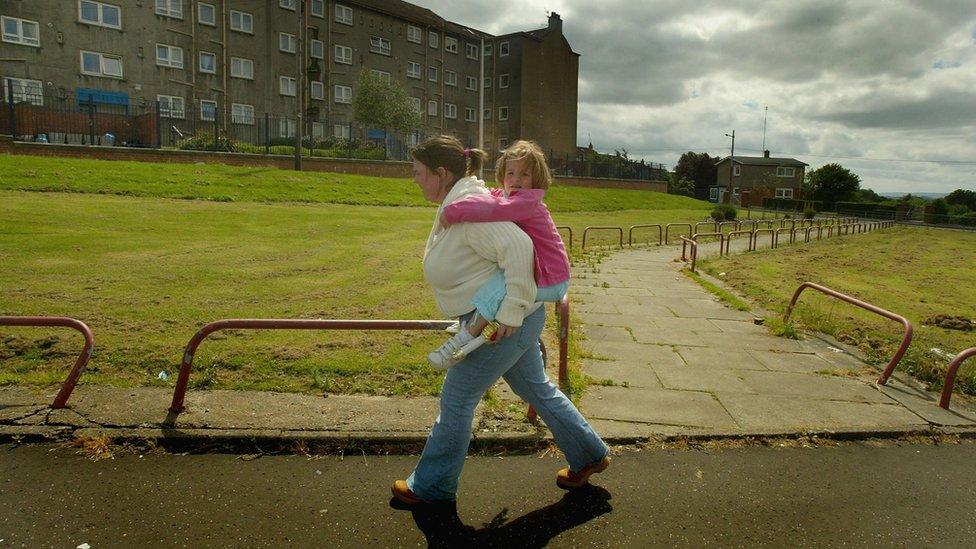'Scottish political establishment' against tax credit changes
- Published

The whole of the Scottish political establishment is against the UK government's tax credit changes, SNP MP Pete Wishart has claimed.
The government is under pressure to rethink the plans, which opponents say will hit low-income working families.
Shadow Scottish Secretary Ian Murray said he wants the plans delayed.
Lib Dem Jeremy Purvis intends to vote against the moves in the Lords and Scots Tory leader Ruth Davidson has said she wants "movement" on the issue.
The Conservative UK government wants to cut tax credits to save £4.5bn a year from 2016, arguing that most working families will still be better off by 2017, as a result of the introduction of the National Living Wage and changes to income tax thresholds.
'Political community'
But Mr Wishart told the BBC's Sunday Politics Scotland programme: "What we're leaving is hundreds of thousands of families in Scotland, out of pocket who are going to be suffering greatly by what's being proposed.
"What we're seeing is the whole of Scotland standing against it, this is now the whole political community in Scotland almost united against this Conservative government."

The issue could pit the Lords against the Commons
Earlier, Labour said it would support the government if it delayed the plans, amid efforts to kill off the proposals entirely.
And Mr Murray told the programme: "If you do postpone over a three year period, you're able to look at the transitional arrangements for the worst off and you're able to kick in with higher wages.
"The government have got this the wrong way around, we do want to see the tax credit bill come down because we don't want to be subsidising poor wages but wages have to go up first."
'Fatal motion'
On Monday, peers will vote on a rarely-used "fatal motion" tabled by the Lib Dems which would scrap the proposed changes entirely.
Lord Purvis said he was determined the "fatal motion" would see the legislation fall at this stage.
He added: "This measure has to be approved by both Houses of Parliament, it cannot proceed unless it has been approved by both Houses of Parliament.
"I will be voting against it tomorrow, I hope the House of Lords will be voting against it tomorrow and the government will therefore have to think again."
Asked about the SNP's opposition to the House of Lords, Mr Wishart said: "We'll accept support from the Devil and the Four Horsemen of the Apocalypse if it was to get rid of the Tory tax credit cuts."
The three politicians also welcomed reported comments from Ruth Davidson, in the Mail on Sunday, external, saying: "If we're not the party of getting people into work and making it easier for them to get up the tree, then what are we there for? It's not acceptable.
"The aim is sound, but we can't have people suffering on the way. The idea that there's a cliff edge in April before the uptake in wages comes in is a real practical human problem and the government needs to look again at it."
Ms Davidson said on Have I Got News For You on Friday that she would like to see "some movement" on the issue by the autumn statement.

What are tax credits and what are the changes?
Tax credits are a series of benefits introduced by the last Labour government to help low-paid families. There are two types: Working Tax Credit (WTC) for those in work, and Child Tax Credit (CTC) for those with children.
Under government proposals, the income threshold for Working Tax Credits - £6,420 - will be cut to £3,850 a year from April.
In other words, as soon as someone earns £3,850, they will see their payments reduced. The income threshold for those only claiming CTCs will be cut from £16,105 to £12,125.
The rate at which those payments are cut is also going to get faster. Currently, for every £1 claimants earn above the threshold, they lose 41p. This is known as the taper rate. But from April, the taper rate will accelerate to 48p.
There will be similar reductions for those who claim work allowances under the new Universal Credit.

- Published25 October 2015

- Published24 November 2015
